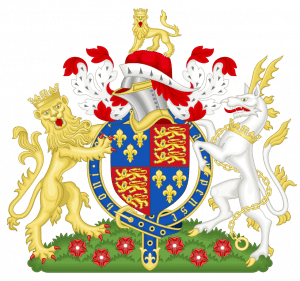 Beware the temptation to find unity in hatred of a common foe.
Beware the temptation to find unity in hatred of a common foe.
Shakespeare starts his Henry IV (Part 1) with the King advocating a Crusade so that fighting will be against “them” “over there” and not in England. Every death in a civil war diminishes the kingdom. There is no winning in such a fight, just minimizing the losses. The Crusade never comes off, because the Kingdom is in turmoil. King Henry faces two foes and fears that his heir, Prince Hal, is not up to the job. Henry seized the crown from the ineffectual Richard II, who died a better man than he lived, and now had to face that his actions bred civil turmoil and his own heir looked a good bit like the wastrel Richard. The best justification for a coup is always stability, things surely cannot get worse, but then they usually do. Richard is dead, Henry IV is king, his son is hanging out with the rogue Sir John Falstaff, but the crown does not vanish.
The Old Foe Looks Better Once Gone
Hatred, or disdain, for Richard II had magnified Henry’s good qualities to his followers. However, his cause, united around hate, could not last. Henry IV was bound to disappoint some of his followers in the distribution of loot and favor. The imperial conquests of the English people, think Wales, grew hopeful for independence in the weakness of the English throne. Henry IV was, perhaps, a better king than Richard, but he was not perfect. Nothing had become Richard like his death. Many political losers, if they go out with dignity intact, grow in esteem after power (and life) is gone.
Think of the polling numbers for a US President out of office: George HW Bush was booted from office by the voters, but now is remembered fondly by most Americans. His son George W Bush also had benefited from the Richard II effect. If a political leader keeps his cool, accepts his demotion and unpopularity, the good done lives after him in memory and the evils are forgotten or at least their relevance fades. The issues of the past are settled, one way or the other, and so (often) are no longer judged as harshly as those of today. Meanwhile today’s leader offends someone with every move he makes.
Now that Richard is gone and no longer loathed what is to be done?
What can unite the country? Maybe a war with France? The French are always good for uniting the English nation in a good bout of loathing.
Some Leaders Are Given a Common Foe, Some Manufacture One
Peace is better than war, but often spawns incompetent or lazy government. When prosperity and peace reign, the temptation is to allow just anyone to take power. The leader in good times often finds “greatness” elusive, because he has not been granted a unifying foe.
Nobody wishes for dangerous times, but Nazi terror does call up a Churchill, given the chance to overcome his errors by getting the biggest question right. The Athenians who faced the Persians were immortalized as a battle for liberty and the life of the city was thrust on those generals and politicians. President Clinton mused about the problems of a “peace and prosperity” leader once the existential evils of Soviet tyranny had been defeated.
What would a Lincoln presidency have been like if the slaver South had not forced the nation to arms? Surely the genius of the Second Inaugural is not found in the First! The war made the man, just as it broke some like Jefferson Davis.
The temptation then, for any leader in trouble, is to find a common foe. Some are born with proper enemies, Frederick Douglass fought racism all his great life. Some have enemies thrust on them by outside foes like Joan of Arc. Some try to become great by finding enemies abroad. The world being what the world is, there are always enemies to be found. Even if, however, the cause found is noble (as Shakespeare assumes the Crusades are), there is a weakness in any unity found.
The Greatest Generation did not fight the Nazis merely for hatred of Germans, but for the love of Great Britain. The Nazis were rightly loathed, but the unity came from a common Britishness and not merely hate. Differences, some great, were subsumed for the duration, not merely because of hatred, but out of a common love for certain British values. A man could love his King, and all he represented, as much as he hated their Fuhrer.
The manufactured foe does not always come on command as a ready made super villain. Every nation or time has a downside. Are the injustices over there great enough to ignore the injuries here? Soviet tyranny was an order of magnitude greater than US faults: there was no moral equivalence. That is not always the case: endless Medieval English wars in France lacked any Christian justification. The region would not be better if this Henry ruled that piece of Normandy rather than that Louis.
Meanwhile the real divisions of a nation are there behind the false unity of hatred. Not surprisingly, hatred breeds hatred and particularly if things begin to go wrong, the old angers resurface. Now hatred has been habituated. The divisions are more terrible. We can battle against devilish ideas and the devils themselves, but even the most righteous hatred is dangerous for us. Too easily people slip into hating other people: not just the bad ideas. God forbid a government demonize peoples to unite a nation. Tsarist Russia demonized the Jewish people in evil pogroms to dampen revolutionary spirit. The evils brewed, the hatred created, has yet to die.
There is no genuine unity out of hatred.
God save the leaders who call forth our “better angels.” God give us leaders like Lincoln who can say:
Both read the same Bible, and pray to the same God; and each invokes His aid against the other. It may seem strange that any men should dare to ask a just God’s assistance in wringing their bread from the sweat of other men’s faces; but let us judge not that we be not judged. The prayers of both could not be answered; that of neither has been answered fully. The Almighty has His own purposes. “Woe unto the world because of offences! for it must needs be that offences come; but woe to that man by whom the offence cometh!” If we shall suppose that American Slavery is one of those offences which, in the providence of God, must needs come, but which, having continued through His appointed time, He now wills to remove, and that He gives to both North and South, this terrible war, as the woe due to those by whom the offence came, shall we discern therein any departure from those divine attributes which the believers in a Living God always ascribe to Him? Fondly do we hope — fervently do we pray — that this mighty scourge of war may speedily pass away. Yet, if God wills that it continue, until all the wealth piled by the bond-man’s two hundred and fifty years of unrequited toil shall be sunk, and until every drop of blood drawn with the lash, shall be paid by another drawn with the sword, as was said three thousand years ago, so still it must be said “the judgments of the Lord, are true and righteous altogether”
With malice toward none; with charity for all; with firmness in the right, as God gives us to see the right, let us strive on to finish the work we are in; to bind up the nation’s wounds; to care for him who shall have borne the battle, and for his widow, and his orphan — to do all which may achieve and cherish a just, and a lasting peace, among ourselves, and with all nations.












